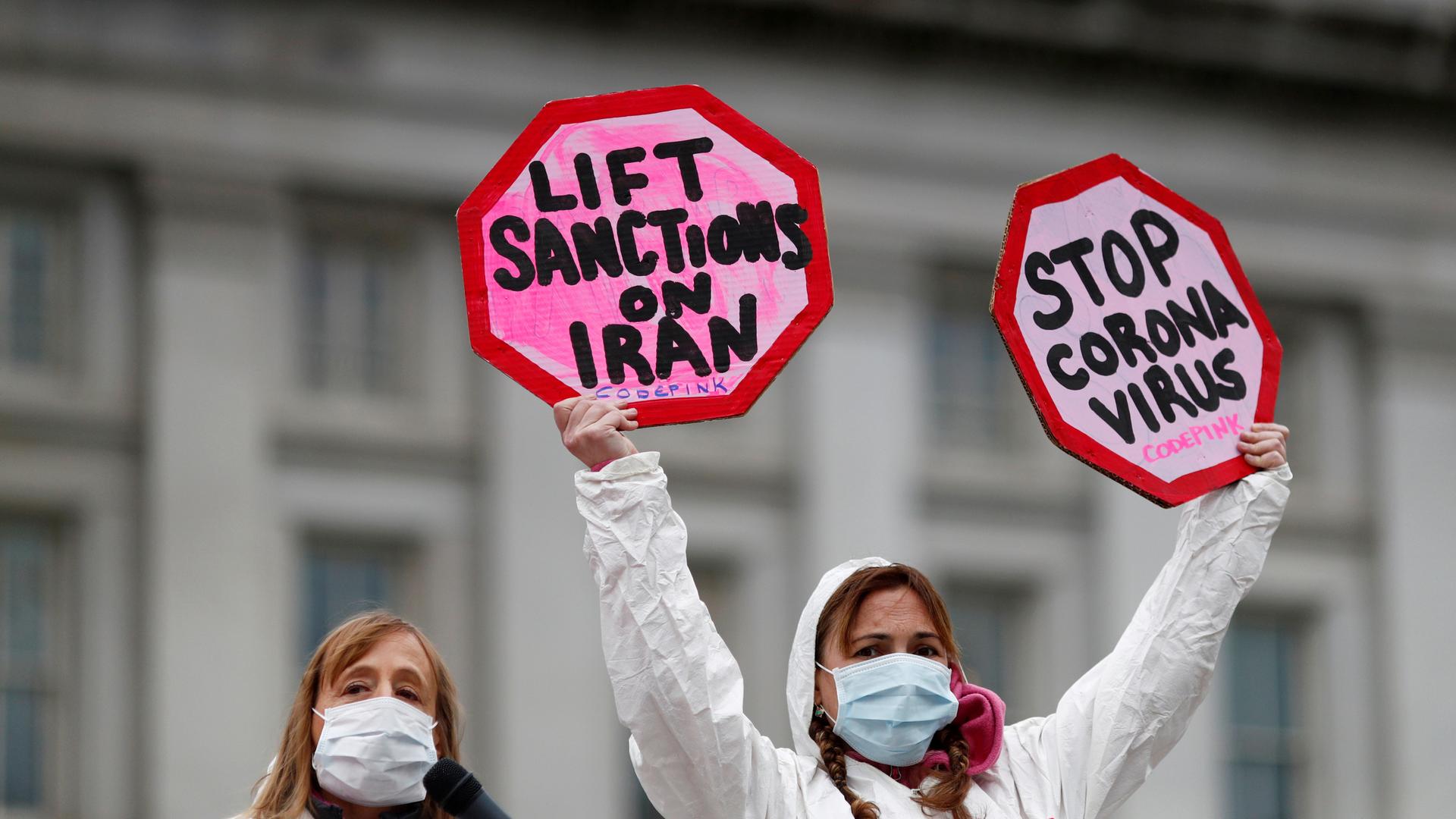The pandemic provides a chance for the US to reassess its financial warfare against Iran and generate some goodwill.
No country in the Middle East has suffered more from Covid-19 (Coronavirus) than Iran where this terrifying pandemic has resulted in 988 reported deaths, according to government sources. Unfortunately, it is a safe bet that Iran’s actual Covid-19 death toll is higher, perhaps by a lot.
Outside of China, Qom is one of the disease’s largest outbreak centres. The main reason why has to do with the Iranian holy city’s links to China that span across numerous sectors.
China’s heavy footprint in Iran, which Shireen Hunter suggested risks making Iran a “Chinese colony”, has largely resulted from the Trump administration’s “maximum pressure” campaign pushing Tehran further into Beijing’s geopolitical and economic orbits.
Yet, as Sanam Vakil explained, Iran’s “trading partner of last resort” proved to be a “very toxic bomb” that has spread Covid-19 to all of Iran’s 31 provinces. Coronavirus has also infected scores of government and military officials including First Vice President Eshaq Jahangiri.
Largely due to the Iranian government’s vested interests in avoiding panic throughout the country, officials in Tehran hid information about the disease’s outbreak in the country. The government publicly announced the news of Covid-19 hitting Iran only several hoursbefore some of the virus’ first Iranian victims were announced dead, underscoring how the regime responded slowly and allowed the virus to spread before openly addressing the crisis.
Authorities reportedly arrested certain citizens who had raised alarm about the disease in Iran. Clearly the government was more focused on controlling the transmission of information about the epidemic than the epidemic itself.
Kamiar Alaei and Arash Alaei, who both previously work as doctors in Iran, recently argued in the New York Times that “this is what happens when you make health policy subservient to politics.”
Also, certain clerics in Qom made matters far worse by refusing to obey the government’s commands to shut down the shrines for several days after the discovery of Covid-19 in Iran last month. Footage shared on social media by Masih Alinejad, a US government-contracted activist, shows worshippers licking holy shrines in Qom and elsewhere in Iran. This activity occurred despite the Health Ministry’s orders to not touch or kiss any of the shrines. The government reportedly plans to jail and flog the two men found guilty of disobeying such orders.
Authorities in the Islamic Republic are now taking coronavirus extremely seriously. Iran has shut down its flights to China (at least most of them), as well as schools and universities nationwide. Drones are flying throughout the country to disinfect streets.
Between Iran’s cities there are checkpoints aimed at containing the disease’s spread. Yet there is no doubt that the ruling Iranian elite’s inertia, corruption, and mismanagement played a big role in Iran’s Covid-19 crisis.
Having said that, much blame belongs on Washington’s doorstep too. The Trump administration’s policies are preventing firms from selling testing kits, ventilators, and other badly needed equipment to Iran because they do business through financial institutions that will not carry the payments as a result of the sanctions.
As Iran’s foreign minister Mohammad Javad Zarif put it, US sanctions have made Iran the victim of “medical terrorism”. In a letter to UN Secretary General Antonio Guterres, Zarif said that sanctions preventing Iran from selling oil, as well as banking/insurance sanctions, have left his country unable to sufficiently provide its citizens with necessary “medicine, medical supplies, and humanitarian goods.”
Iran recently asked the International Monetary Fund (IMF) for USD 5 billion bailout to help the government battle coronavirus. The extent to which the IMF helps Iran will say much about how sincere the DC-headquartered institution is in terms of its rhetoric about helping countries across the world fight Covid-19.
Many questions remain open about whether the IMF will approve this aid to Iran, and if the banks involved will overcome their fears of U.S. sanctions to move ahead with the transfer of funds to Iran. It is clear that the Trump administration’s indiscriminate “financial warfare” against Iran violates the Iranian people’s right to health, and without Washington changing its course, more Iranians will face the extra challenges of containing coronavirus as sanctions continue strangling their country.
New opportunities amid crisis
It is important for the US administration to recognise an opportunity for Washington to earn some good will among Iranians and begin gradually improving bilateral relations. It would behoove US policymakers to accept the fact that “maximum pressure” has failed miserably in terms of its objectives.
Put simply, this US campaign against Iran has not pressured Tehran into changing its conduct — exemplified by Iran’s continued support for regional groups opposed by Washington as well as the country’s recent nuclear activities. The pandemic, however, provides Washington with an off-ramp from US-Iran brinkmanship.
Although the killing of Major General Qasem Soleimani at the beginning of this year has made diplomacy between Washington and Tehran increasingly difficult to imagine, the Covid-19 crisis could give the US an opportunity to secure the release of American hostages in exchange for humanitarian assistance to Iran.
Although it would be naïve to think that such progress could easily, quickly, or even inevitably solve all the outstanding problems in US-Iran relations, it could be a good start.
As one of Trump’s Republican predecessors in the White House, George H. W. Bush, famously said to the then-ten-year-old Islamic Republic in his Inaugural Address: “Goodwill begets goodwill”.
Author: Giorgio Cafiero
Giorgio Cafiero is the CEO of Gulf State Analytics (@GulfStateAnalyt), a Washington, DC-based geopolitical risk consultancy.
Source










Discussion about this post